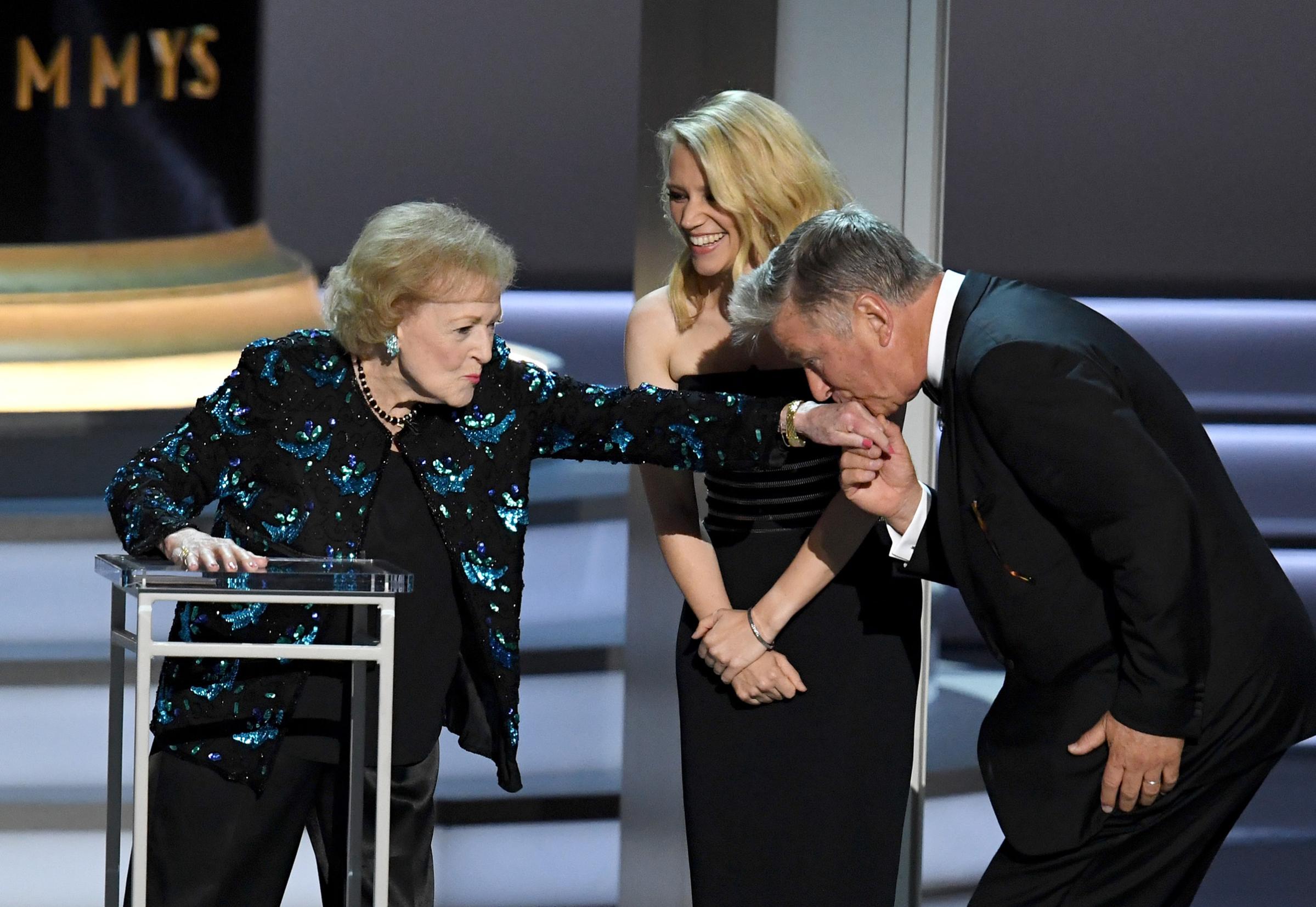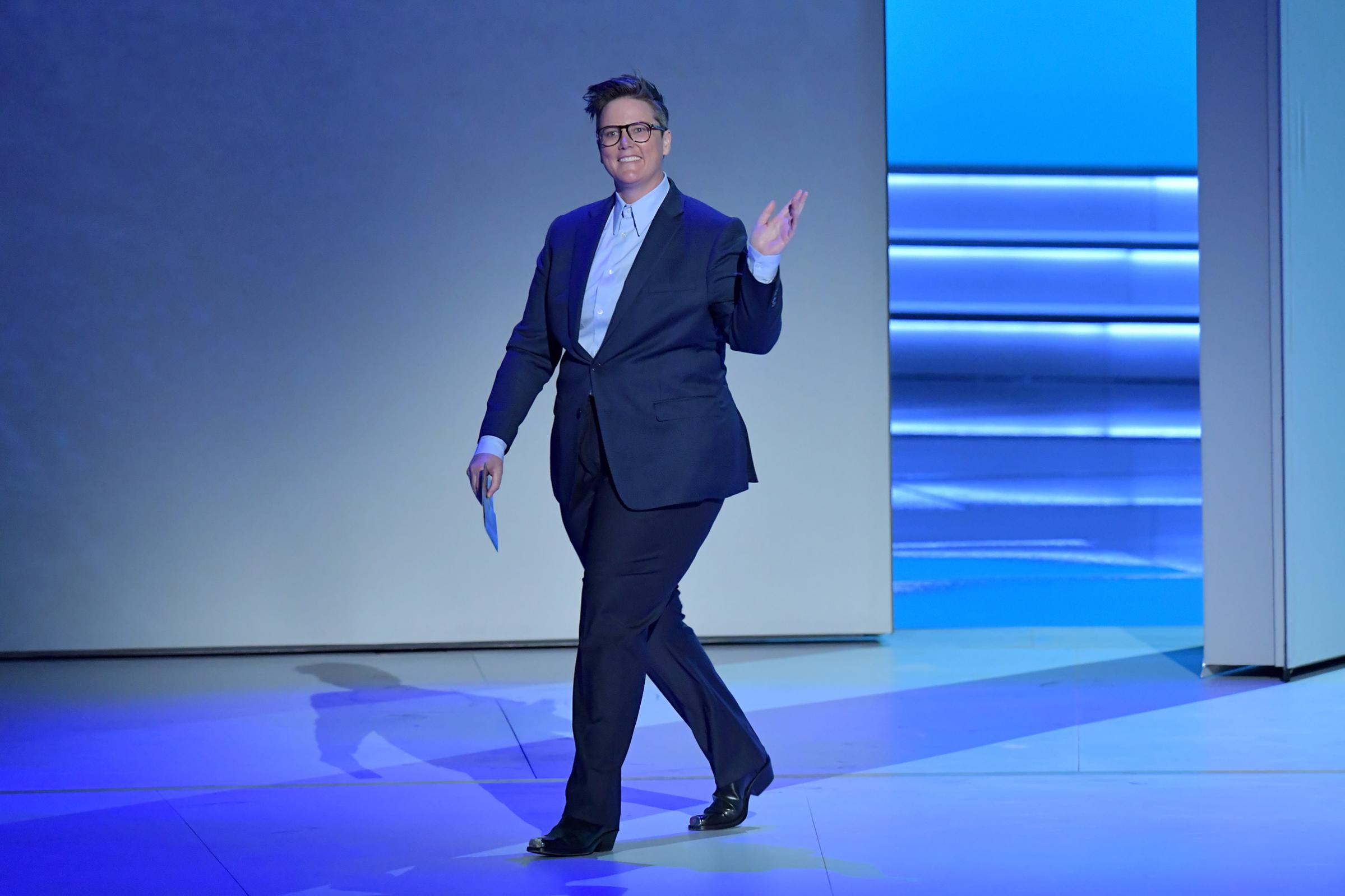The 2018 news cycle hasn’t offered much to cheer about, but if there’s one realm of public life worth celebrating this year, then surely it’s television. Thanks to Netflix and other streaming services, there is more original programming out there than ever before, and it feels like a small miracle that we can watch brilliant shows like Sharp Objects, Atlanta and Killing Eve without leaving home. TV is clearly the dominant popular art form of the decade, if not the century. But you wouldn’t have known it from watching the 70th Primetime Emmy Awards.
From the very beginning, Monday night’s telecast seemed intent on undermining itself. Kenan Thompson, opening the show alongside his Saturday Night Live cast mate Kate McKinnon, announced that this year’s awards boasted the “most diverse group of nominees in Emmy history.” Then the pair launched into a dance number dubbed “We Solved It,” enlisting Sterling K. Brown, Kristen Bell, Ricky Martin, John Legend and others in a tongue-in-cheek celebration of the tokenism the entertainment industry calls progress. It was impossible to tell whether the lack of famous women of color on stage was a subtle statement or an oversight. But at least Sandra Oh, the first Asian-American woman ever to be nominated for a Best Lead Actress Emmy, got to deliver the only genuinely funny line—“It’s an honor just to be Asian”—from her seat.
Hosts Michael Che and Colin Jost couldn’t drum up much enthusiasm for the proceedings. They may be the least charismatic “Weekend Update” team of the 21st century, and it showed in weak jokes about Netflix’s mammoth budget and the Obamas making their own version of The Apprentice. As men in a business rocked by the Time’s Up movement, they had to be very careful in addressing the year’s biggest entertainment story. In their intro, Che greeted the “many, many talented and creative people in Hollywood who haven’t been caught yet,” while Jost pointed out that attendees were allowed to drink at the ceremony and cracked that “the one thing Hollywood needs right now is people losing their inhibitions at a work function.” The comment proved prescient: The Emmys felt like a holiday party at an office that had just laid off half its staff.
Even the most reliable and beloved personalities enlisted to help Jost and Che struggled to raise the night’s energy level. Paired with her old SNL colleague Fred Armisen, the godlike Maya Rudolph couldn’t manage to wring any laughs out of a dire running gag that cast them as inept Emmy experts. The affable James Corden nearly ruined Betty White’s sweet victory lap with an “#EmmysSoWhite” pun.

Meanwhile, the list of presenters included such famous critics of the entertainment industry as Dave Chappelle, who didn’t bother to feign any excitement about the awards, and Hannah Gadsby, the Australian comic whose divisive Netflix special Nanette denounced comedy for exploiting the pain of oppressed groups. Gadsby looked spectacularly uncomfortable onstage; months after breaking through to an international audience with a set that framed her retirement from stand-up as inevitable, she alluded to that performance in quips about how she’d gotten famous by hating men. “#NotAllMen—but a lot of them,” she said, in the evening’s only genuinely cutting Time’s Up reference.

Then there were the awards themselves. Amid a ceremony that tried to make light of the Emmys’ race and gender problems but never actually achieved levity, the parade of white winners did its part in dragging down the mood. While diverse shows like Insecure, Black-ish, GLOW and Killing Eve, as well as stylistic groundbreakers like Twin Peaks: The Return, The Good Place and Atlanta, got a smattering of nominations, it was overwhelmingly white, escapist fare that took home most of the prizes. Other standouts, including BoJack Horseman, Claws, Search Party and Master of None co-star Lena Waithe’s The Chi, weren’t part of the awards conversation at all. HBO didn’t nab a trophy for The Tale, a stirring and nuanced movie about a woman confronting sexual abuse in her past. But the network’s hit, Game of Thrones—which, for all its other merits, has consistently mishandled storylines about rape—was named the year’s best drama.
Maybe the Emmys just haven’t caught up with our current overabundance of great, challenging television. They are, after all, aired on and hosted by personalities from the same ailing Big 5 networks that only picked up awards last night for SNL and the Oscars. Maybe there’s too much of a disconnect between a Television Academy membership that worships staid, glossy mega-hits and a wider TV landscape flooded with radical new voices and unprecedented creativity. (That could explain why the unexplained appearance of Atlanta‘s Teddy Perkins seemed more inspired than anything that happened onstage.) Maybe no one felt up to cheering an industry run, in large part, by alleged serial predators like Les Moonves (whose downfall didn’t get a single mention during the telecast). Maybe NBC shouldn’t have treated the Emmys as a vehicle to promote “Weekend Update.”
With that combination of woes weighing down last night’s telecast, we were left with a ceremony that felt only tangentially connected to the art form it was supposed to be celebrating. If you look beyond the major networks, TV is doing great in 2018. The Emmys? Not so much.
More Must-Reads From TIME
- The 100 Most Influential People of 2024
- The Revolution of Yulia Navalnaya
- 6 Compliments That Land Every Time
- What's the Deal With the Bitcoin Halving?
- If You're Dating Right Now , You're Brave: Column
- The AI That Could Heal a Divided Internet
- Fallout Is a Brilliant Model for the Future of Video Game Adaptations
- Want Weekly Recs on What to Watch, Read, and More? Sign Up for Worth Your Time
Contact us at letters@time.com